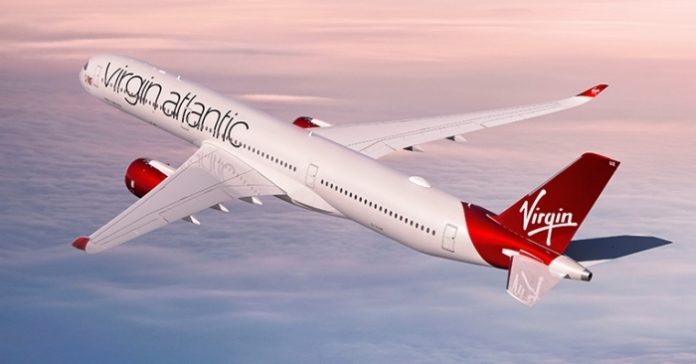A Virgin Atlantic Boeing 787 powered by 100% sustainable aviation fuel (SAF) completed a historic London-to-New York journey, marking a significant milestone for low-carbon air travel. While the flight carried only Virgin’s founder, Richard Branson, and a few others, it highlights the industry’s commitment to reducing emissions and exploring sustainable alternatives. SAF, made from waste, has the potential to reduce aviation emissions by up to 70%, but challenges such as high costs and limited supply hinder large-scale production. The flight is seen as a step toward achieving a more sustainable future for air travel, although widespread adoption of SAF remains a complex challenge.
Virgin’s Pioneering Flight
The flight was operated by a Virgin Boeing 787 equipped with Rolls-Royce Trent 1000 engines, making it the first commercial airliner to fly long-haul on 100% SAF. The journey from London’s Heathrow Airport to New York’s John F. Kennedy International Airport showcased the feasibility of using alternative fuels in aviation. The SAF used in the flight is primarily derived from used cooking oil and waste animal fat, with a small amount of synthetic aromatic kerosene made from waste corn.
Challenges and Opportunities: Virgin Atlantic
While the aviation industry aims to reduce its environmental impact, challenges like the high cost and limited availability of SAF persist. SAF accounts for less than 0.1% of total global jet fuel usage, and its cost is three to five times higher than regular jet fuel. Airlines are looking to governments for financial support to overcome these challenges and accelerate the adoption of sustainable alternatives. The success of the Virgin Atlantic flight serves as a notable achievement, emphasizing the potential of SAF in the industry’s journey toward greater sustainability.
Environmental Impact and Future Goals
Aviation is responsible for approximately 2-3% of global carbon emissions, making it a challenging sector to decarbonize. Achieving the industry’s goal of “net zero” emissions by 2050 hinges on increasing the share of SAF in the overall fuel mix. European airlines, including Virgin Atlantic, have expressed their commitment to using 10% SAF by 2030, with the broader goal of reaching 65% to meet net-zero targets. While SAF holds promise as a medium-term solution for decarbonizing commercial flights, achieving these ambitious targets will require concerted efforts and government support.
Criticism and Greenwashing Concerns
Despite the positive aspects of the Virgin Atlantic flight, environmental advocacy groups, such as Stay Grounded, have raised concerns about greenwashing. They emphasize the need to prioritize reducing flights and burning fewer fossil fuels to address the root causes of aviation emissions. The industry’s pursuit of sustainable alternatives is seen as a positive step, but it must be accompanied by broader efforts to curtail carbon-intensive practices in air travel.
Conclusion
Virgin Atlantic’s successful 100% low-carbon transatlantic flight demonstrates the aviation industry’s commitment to exploring sustainable alternatives. While challenges exist, the milestone highlights the potential of SAF in reducing emissions and advancing the industry’s environmental goals. The collaboration of airlines, manufacturers, and fuel suppliers, along with government support, will be crucial in overcoming barriers and accelerating the widespread adoption of low-carbon technologies in aviation.
Also Read



